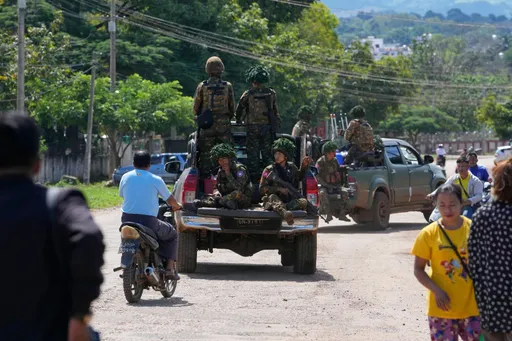Kyrgyzstan's Parliament has voted again to nominate a prime minister after the country's president vetoed the previous decision because of questions over its legitimacy.
The back-and-forth reflected the political crisis that has unfolded in the Central Asian country since a disputed parliamentary election triggered mass protests earlier this month.
The parliament nominated politician Sadyr Japarov as the new prime minister on Wednesday after a similar vote on Saturday, which was challenged by some lawmakers.
They said the legislators didn't have a quorum to make the decision. President Sooronbay Jeenbekov refused to sign the decree confirming Japarov's appointment and asked the parliament to hold another vote.
“In order to maintain and strengthen stability in the country, all our decisions need to be legitimate and not be questioned,” Jeenbekov said on Tuesday at a meeting with Japarov.
The lawmakers on Wednesday also supported Japarov's suggestions for the Cabinet.
READ MORE:Kyrgyz president says he will ask parliament to vote again on PM
Political chaos
Kyrgyzstan, a country of 6.5 million people located on the border with China, plunged into chaos last week after mass protests erupted the day after a parliamentary election appeared to show parties connected to the ruling elite winning.
Protesters stormed and seized government buildings, looting some offices, and the Central Election Commission responded by nullifying the October 4 balloting.
READ MORE:Kyrgyzstan extends state of emergency amid violent protests
As the unrest continued, opposition groups announced plans to form a new government and oust Jeenbekov, who faced calls from protesters to resign.
Jeenbekov said he may consider stepping down after the political situation in the country stabilises, and declared a state of emergency in the country's capital, Bishkek, in a bid to end the turmoil.
READ MORE: Kyrgyzstan's President Jeenbekov 'ready to resign'
Businesses reopen
Authorities deployed troops to Bishkek over the weekend and introduced a curfew. The move eased tensions in the city, where residents feared a wave of looting that accompanied previous uprisings and began forming vigilante groups to protect their property.
Stores and banks that were shut last week have reopened for business.
The turmoil marks the third time in 15 years that demonstrators have moved to oust a government in Kyrgyzstan, one of the poorest nations to emerge from the former Soviet Union.
As in the uprisings that ousted Kyrgyz presidents in 2005 and 2010, the current protests have been driven by clan rivalries that shape the country’s politics.
Kyrgyz media reported on Wednesday that crowds of Zhaparov's supporters have once again gathered in Bishkek, despite the state of emergency and a ban on rallies, and were demanding Jeenbekov's resignation.
READ MORE: Kyrgyzstan election results declared invalid after mass protests























